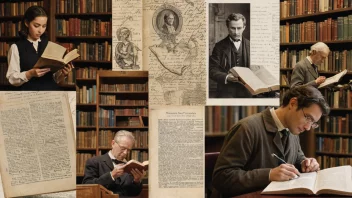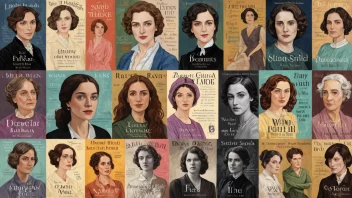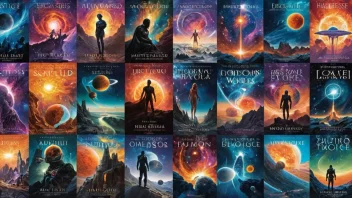Non-fiction literature has an unparalleled ability to illuminate, challenge, and transform the way we perceive the world. From social issues to scientific discoveries, impactful non-fiction works have altered our understanding of society, history, and ourselves. The following list highlights some of the most influential non-fiction books that have not only informed readers but also inspired change and reflection.
1. "Sapiens: A Brief History of Humankind" by Yuval Noah Harari
This groundbreaking book takes readers through the journey of humankind from the Stone Age to the modern era. Harari explores the evolution of Homo sapiens, the development of cultures, and the impact of capitalism, science, and technology on human society. By linking history with biology, Harari challenges readers to rethink their place in the world and the factors that have shaped human civilization.
2. "The Immortal Life of Henrietta Lacks" by Rebecca Skloot
This compelling narrative dives into the story of Henrietta Lacks, whose cells were taken without her knowledge and became one of the most important tools in medicine. Skloot intertwines Lacks' personal story with broader themes of ethics in medical research, race, and the exploitation of African Americans. The book prompts readers to consider the moral implications of scientific advancement and the often-overlooked contributions of marginalized individuals.
3. "Silent Spring" by Rachel Carson
Published in 1962, "Silent Spring" is credited with igniting the environmental movement. Carson meticulously documents the dangers of pesticides, particularly DDT, and their devastating effects on ecosystems. Through her passionate prose and scientific research, Carson inspires readers to reconsider humanity's relationship with nature and the responsibility we have to protect the environment. This book is a powerful reminder of the impact of our actions on the planet.
4. "The Second Sex" by Simone de Beauvoir
In this seminal work of feminist philosophy, de Beauvoir challenges the traditional notions of gender and the societal roles assigned to women. She explores the historical context of women's oppression and the construction of femininity in a patriarchal society. By articulating the idea that one is not born but rather becomes a woman, de Beauvoir lays the groundwork for modern feminist thought, urging readers to reflect on gender equality and women's rights.
5. "Thinking, Fast and Slow" by Daniel Kahneman
Nobel laureate Daniel Kahneman delves into the dual systems of thought that drive human decision-making. He distinguishes between the fast, intuitive thinking and the slower, more deliberate reasoning processes. Through engaging anecdotes and research findings, Kahneman reveals the biases and errors that often affect our judgments. This book has profound implications for fields such as economics, psychology, and personal decision-making, encouraging readers to be more aware of their cognitive processes.
Each of these non-fiction works has made significant contributions to our understanding of the world. By challenging assumptions, highlighting social injustices, and fostering critical thinking, they invite readers to engage with complex ideas and consider their own beliefs. As we explore these transformative texts, we not only expand our knowledge but also cultivate a deeper empathy for the experiences of others.






